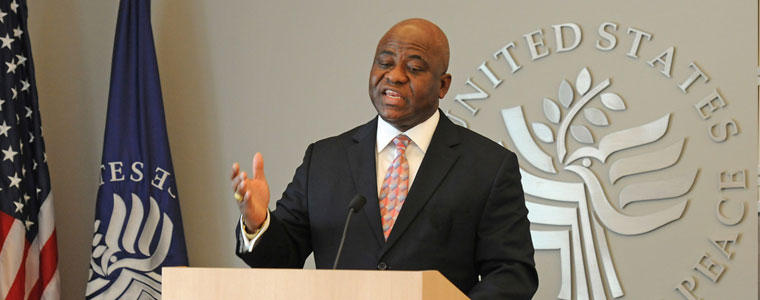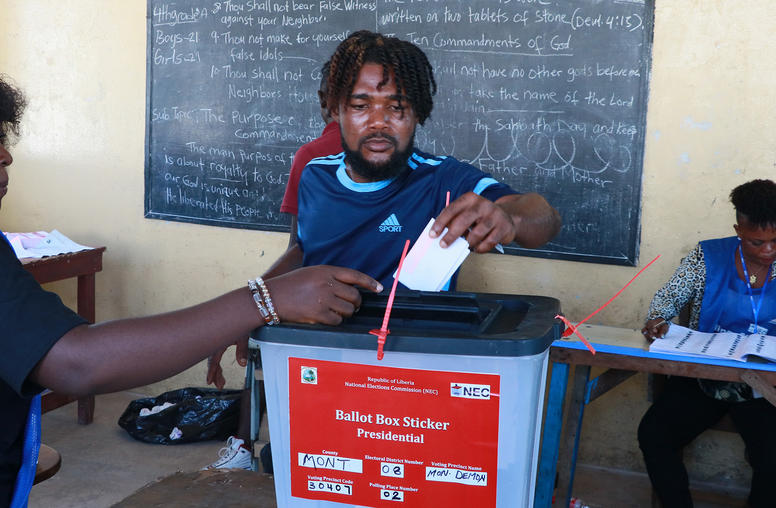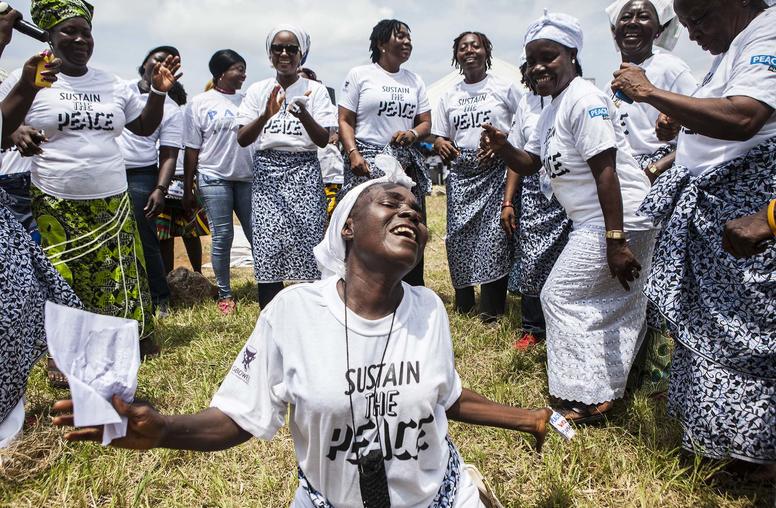Security Sector Transformation in Post-Conflict Liberia
On April 4, 2012, USIP hosted a public event on Security Sector Transformation in Post-Conflict Liberia featuring the Liberian Defense Minister, Hon. Brownie Samukai. He outlined plans to have the nation’s security forces and institutions fully operational by 2014, and discussed implications of the transition for Liberia and the sub-region.

 Between 1989 and 2003, Liberia’s civil war claimed approximately 150,000 lives, displaced almost a million people, disrupted an entire nation and destabilized the sub-region. Since the end of hostilities in 2003 and the return to democracy in 2005 under the leadership of President Ellen Johnson Sirleaf, the country has been gradually rebuilding and returning to normalcy. Efforts to foster political, social and economic progress must be underpinned by a robust security sector. A critical aspect of Liberia’s recovery is improved security sector governance. USIP’s Security Sector Governance Center focuses on developing effective and accountable post-conflict security forces and supervisory institutions. This issue takes on added significance in Liberia as the United Nations peacekeeping force, UNMIL, gradually transfers responsibility for policing and the military to the Liberian government. Liberian Defense Minister Hon. Brownie Samukai (pictured) outlined plans to have the nation’s security forces and institutions fully operational by 2014, and discussed the implications of the transition for Liberia and the sub-region.
Between 1989 and 2003, Liberia’s civil war claimed approximately 150,000 lives, displaced almost a million people, disrupted an entire nation and destabilized the sub-region. Since the end of hostilities in 2003 and the return to democracy in 2005 under the leadership of President Ellen Johnson Sirleaf, the country has been gradually rebuilding and returning to normalcy. Efforts to foster political, social and economic progress must be underpinned by a robust security sector. A critical aspect of Liberia’s recovery is improved security sector governance. USIP’s Security Sector Governance Center focuses on developing effective and accountable post-conflict security forces and supervisory institutions. This issue takes on added significance in Liberia as the United Nations peacekeeping force, UNMIL, gradually transfers responsibility for policing and the military to the Liberian government. Liberian Defense Minister Hon. Brownie Samukai (pictured) outlined plans to have the nation’s security forces and institutions fully operational by 2014, and discussed the implications of the transition for Liberia and the sub-region.
Speakers
- Hon. Brownie Samukai, Featured Speaker
Minister of Defense, Republic of Liberia - Ambassador John Blaney (ret.), Discussant
Former U.S. Ambassador to Liberia (2002-2005) - Dr. J. Peter Pham, Discussant
Director, Michael S. Ansari Africa Center, Atlantic Council - Robert Perito, Moderator
Director, Security Sector Governance Center, U.S. Institute of Peace
Explore Further
- Read a news summary of this event
- USIP's work in Liberia: Since 2006, USIP has assisted in Liberian law reform and conducted extensive field research on how formal and customary systems are perceived and utilized by Liberians as well as the implications for policy regarding the justice sector.
- USIP's Security Sector Governance Center
Related Academy Courses
- Supporting Police Reform: Capacity Building for Advisers and Trainers (July 10-12, 2012)
- Strategic Economic Needs and Security Exercise (SENSE)
- Economic Reconstruction in Conflict-Affected States


